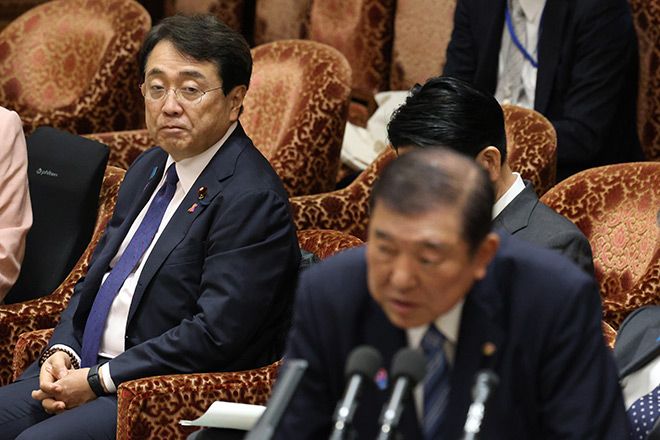Japan will be first in line among major nations in entering into discussions with the U.S. government over reciprocal tariffs.
While it is desirable that Cabinet-level ministers of Japan and the United States engage in dialogue at an early stage, the negative effects of the unilateral and high tariffs are extensive and the basis for the tariffs is feeble.
Ryosei Akazawa, the minister for economic revitalization who will travel to the United States for those talks, must question the rationale for the tariffs and ask Washington to reconsider.
The U.S. side, including Treasury Secretary Scott Bessent, will likely bring up nontariff barriers and foreign exchange rates, which have come under increasing criticism from Washington, and press Japan for further concessions.
But despite the huge publicity given to the unveiling of the reciprocal tariffs, there are doubts about the basis for calculating the tariff rate, with some pointing out it was simply calculated by dividing the U.S. trade deficit with a certain nation by the import figure.
The argument that trade barriers were taken into consideration when calculating the tariff rate should also not be taken at face value.
There is no reason for Japan to make a concession if the United States cannot offer a convincing explanation.
While the global trade order centered on the World Trade Organization has been shaken from its roots due to a United States that is out of control, various nations will closely focus on the stance taken by Japan as the first major nation to negotiate with the United States.
As the no-holds-barred retaliatory exchange between the United States and China intensifies, the situation has also arisen of smaller nations having to face off against a superpower.
Now is the time for Japan to clearly present its stance of protecting the world trade order as one of the major economic powers.
During Diet deliberations, Prime Minister Shigeru Ishiba has expressed his “strong doubts” about coherence between what the United States is doing and the agreement that created the WTO.
At the same time, he has also stated that Japan should not be treated in the same manner as other nations since it is an ally and the largest investor nation in the United States.
But if Japan places a priority on receiving special treatment from the United States, it will not only be in a weaker negotiating position with Washington, but could also lose the trust of the international community.
Negotiations should be conducted firmly and eager ingratiation must be eliminated.
The direction of U.S. policy remains confused, such as its 90-day pause for some reciprocal tariffs and its repeated backtracking regarding tariffs on smartphones.
The arbitrary policy management of a superpower has markedly heightened uncertainty for companies and investors of various nations and has brought about a delay in investment decisions and commotion in financial markets.
There can be no stability in the global economy unless the United States ends its self-righteous actions in violation of trade rules.
There is a need for Japan to tenaciously make such an argument to the United States.
U.S. President Donald Trump has also expressed dissatisfaction with the Japan-U.S. Security Treaty in line with the tariff issue. He has said the treaty is unfair and that Japan has not spent anything.
But Japan has provided bases for the U.S. military in various parts of the nation and has shouldered a large amount to cover the costs of stationing U.S. forces in Japan.
The United States has also benefited in terms of its own global strategy and by the peace and stability in the Asia-Pacific region.
The first step should be to question Trump’s biased understanding.
–The Asahi Shimbun, April 16


AloJapan.com